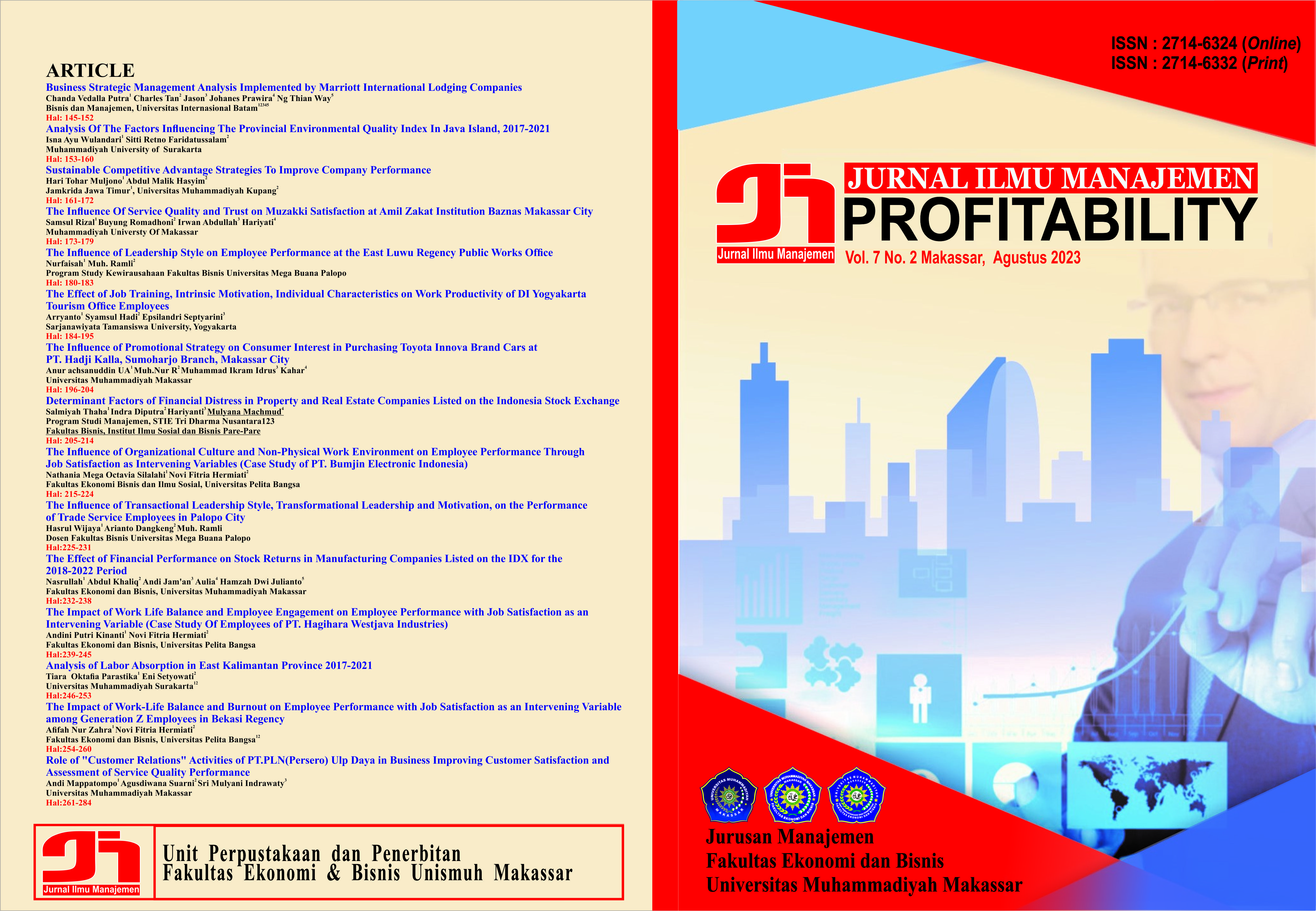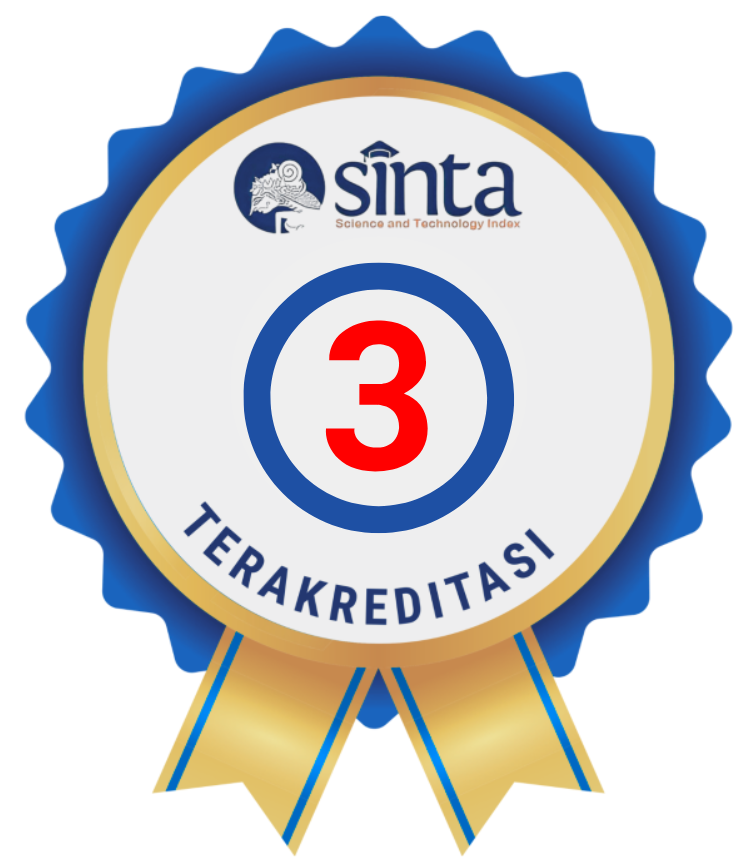The Impact of Work-Life Balance and Burnout on Employee Performance with Job Satisfaction as an Intervening Variable among Generation Z Employees in Bekasi Regency
DOI: https://doi.org/10.26618/profitability.v7i2.11061
Abstract
Generation Z refers to individuals born between 1995 and 2010. Growing up in the midst of technological advancements, Generation Z possesses distinct mindsets and habits compared to previous generations, which consequently influences their perspectives on the workforce. This research aims to examine the effects of Work-Life Balance and Burnout on Employee Performance, with Job Satisfaction as the mediating variable, among Generation Z employees in Bekasi Regency. The sampling method employed in this study is non-probability sampling, specifically purposive sampling, with a sample size of 120 respondents determined using the Lemeshow formula. The participants of this research consist of Generation Z employees in Bekasi Regency. The methodology employed in this study is Structural Equation Modeling (SEM) analysis conducted with Lisrel 8.8 software. The findings indicate that Work-Life Balance does not significantly impact Employee Performance, Burnout does not significantly influence Employee Performance, Burnout does not significantly affect Job Satisfaction, Work-Life Balance significantly affects Job Satisfaction, Job Satisfaction significantly impacts Employee Performance, and Job Satisfaction mediates the relationship between Work-Life Balance and Employee Performance, as well as Burnout and Employee Performance.
Downloads
Published
Issue
Section
License
Authors who publish with Jurnal Ilmu Manajemen Profitability agree to the following terms:
Copyright of the articles remains with the authors.
Authors grant the journal the right of first publication with the work simultaneously licensed under a Creative Commons Attribution-NonCommercial 4.0 International License (CC BY-NC 4.0). This license allows others to:
Share (copy and redistribute the material in any medium or format)
Adapt (remix, transform, and build upon the material)
as long as they give appropriate credit to the original author(s) and source, provide a link to the license, and indicate if changes were made. Non-commercial use only.
Authors are permitted to:
Distribute their published work (e.g., post it to an institutional repository or publish it in a book), with an acknowledgment of its initial publication in this journal.
Enter into separate, additional contractual arrangements for the non-exclusive distribution of the journal’s published version of the work (e.g., post it to a class website or institutional archive).
For permissions to use the content published in this journal beyond the scope of the license (e.g., commercial purposes), please contact the editorial office via the journal email.
License Details:
This journal is licensed under a Creative Commons Attribution-NonCommercial 4.0 International License (CC BY-NC 4.0).












